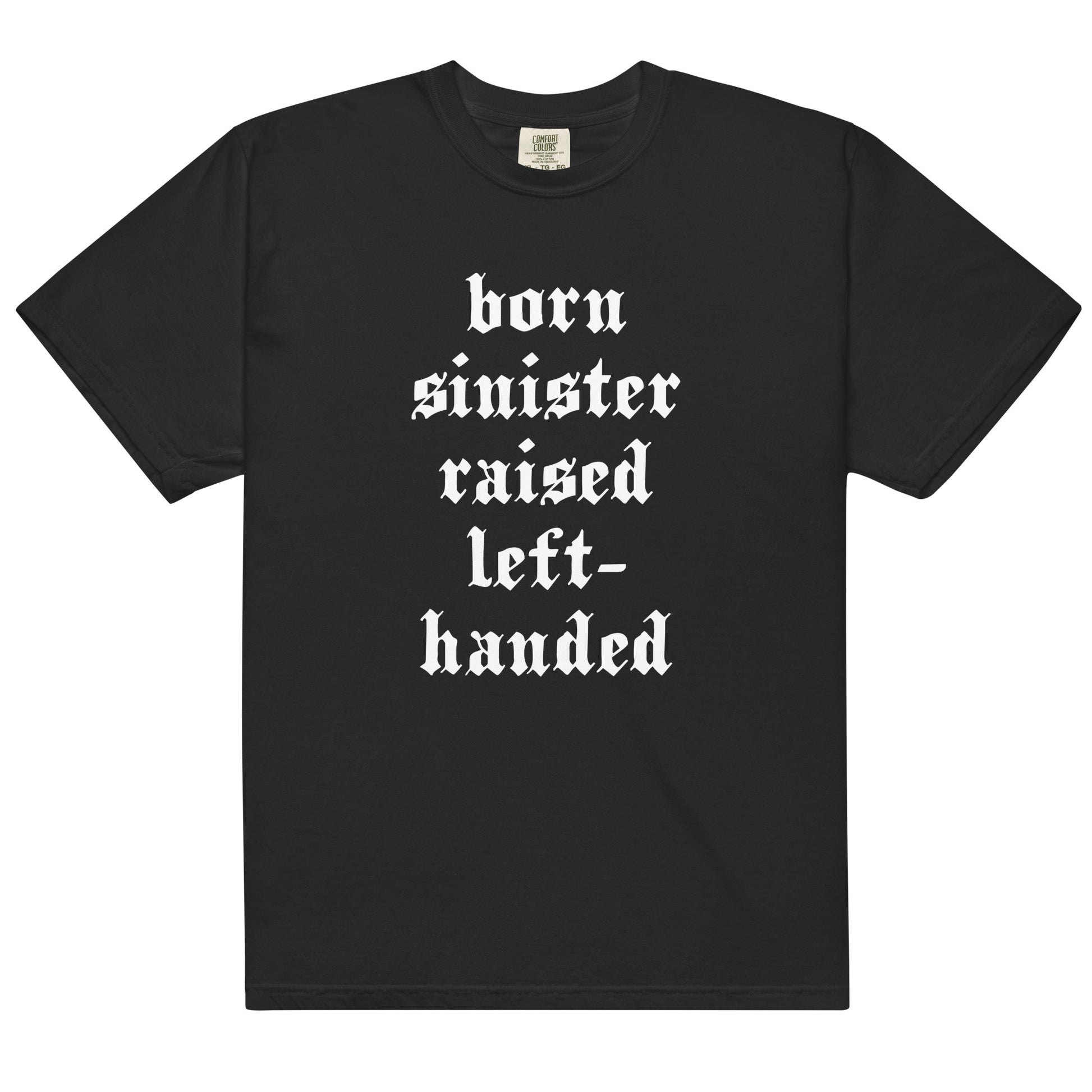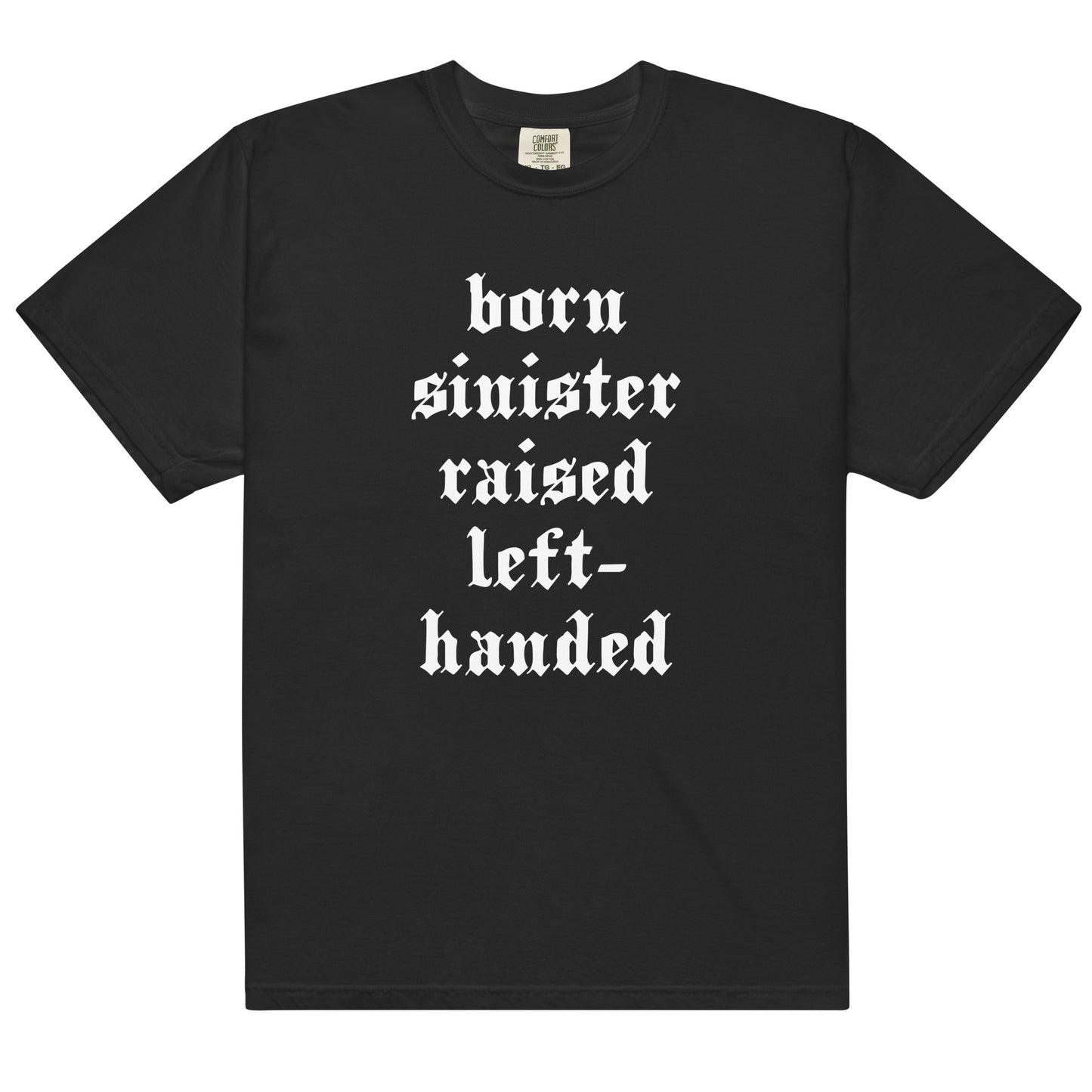
The Sinister Meaning of the Left-Handed Life
Share
Does Sinister Mean Left-Handed?
The sinister meaning of a word can tell you a lot about history. If you Google sinister definition today, you’ll get something along the lines of evil, menacing, or threatening. In everyday speech, sinister synonym lists include words like creepy, ominous, and wicked. Pretty heavy stuff. But peel back the layers and you’ll find the original sinister left-handed connection hiding in plain sight. Yes, once upon a time, sinister literally meant “left-handed.” So does sinister mean left-handed? In its origin, absolutely. And that fact says a lot about how society viewed people like us.
What Does “Sinister” Mean Today?
Modern dictionaries give you the grim picture first. If something has a sinister meaning, it suggests harm, danger, or evil intent. A sinister plan, a sinister shadow, a sinister laugh. You get the idea. The word carries weight. It is shorthand for bad vibes and bad outcomes.
According to Merriam-Webster, the word sinister has six meanings, and most of them aren’t flattering.
1. singularly evil or productive of evil
2. accompanied by or leading to disaster
3. presaging ill fortune or trouble
4. a) of, relating to, or situated to the left or on the left side of something
especially : being or relating to the side of a heraldic shield at the left of the person bearing it
b) of ill omen by reason of being on the left
5. archaic : unfavorable, unlucky
6. archaic : fraudulent
Where Did the Word Come From?
The origin is more surprising than spooky. Sinister comes from the Latin word for “left” or “on the left side.” At first it was simply a directional label. Nothing inherently evil about it. But as cultures developed their hang-ups, being on the left took on the sense of “unlucky” or “inauspicious.” That’s how the shift began. What started as a simple label for orientation warped into an insult.
How Left-Handedness Got Caught in the Crossfire
Superstition did the rest of the work. Being left-handed was treated with suspicion for centuries. Parents forced children to switch hands in school. Religions painted the left side as cursed or inferior. Even casual language piled on with insults like “a left-handed compliment.” Then, over time sinister came with a built-in judgment: unlucky, twisted, wrong. Much to the chagrin of lefties everywhere.
Reclaiming the Word Today
Here’s the part where it gets personal. Left-handed people carry the same label that morphed into “evil.” The sinister meaning became shorthand for bad. But being left-handed is not a curse. It’s a quirk, a minority trait, and sometimes a headache when scissors are involved. The connection between sinister and left-handed might have been used as an insult, but it can be reclaimed as a badge. If sinister means us, then so be it. We’ll take it and own it.
The Last Word on Sinister Meaning
The sinister definition might read “evil” today, but the root tells another story. Sinister once just meant “left-handed.” That little detail shows how language holds centuries of bias. The word changed, but the people it pointed to didn’t. Left-handers are still here, still writing, still drawing, still spilling ink all over the page. Sinister meaning? It’s just another reminder that we’ve been underestimated for a long time, and that we’re still flipping the script.
Curious for more? Grab your left-handed mug, get comfy, and check out legendary southpaws, surprising lefty facts, and our favorite tools made for us.


